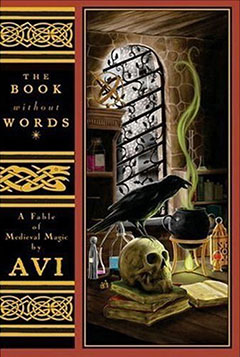 When the phone call came telling me that I had won the Newbery award for Crispin: The Cross of Lead, truly, my very first thought was, The next book had better be good.
When the phone call came telling me that I had won the Newbery award for Crispin: The Cross of Lead, truly, my very first thought was, The next book had better be good.
How to explain? It’s my experience that writers, despite an outward appearance of cheerful belief in their own talent, are quite often, in fact, insecure. It’s not hard to explain why: you sit alone and work for long periods of time on a project. You are constantly thinking, is this right? Is this any good? Will anyone like it? As one of my early mentors told me: “To be a successful writer, you have go to bed thinking what you’ve written is terrific, as long as when you get up in the morning you know how bad it is. To reverse the process is to go mad.”
And there is another level of insecurity. Win an award and the internal (and eternal) question is inevitably, can I do that again? The painful truth is, probably not. When a very young writer wins a major award, I truly feel sorry for them. They may well be chasing that award for the rest of their writing lives.
Hence my reaction to the Newbery award: The next book had better be good.
The next book I wrote was The Book Without Words and, indeed, it proved one of the most difficult books I have ever written. That was me chasing the award, wanting so much to make it good.
That said, the book was well received, and enjoyed a reception such as this Amazon posting: “This book has everything in it that my daughter loves and she treasures this book! She originally got this book at the book fair when she was younger and it got misplaced. She was ecstatic when I gave it to her to replace the one she lost years ago.”
The story, a medieval fantasy, deals with magic and alchemy. The title comes from a medieval book, an absolutely blank book. Magicians would claim they could read the book, and bring forth spirits.
Not altogether different, I once heard the poet Donald Hall explain what makes for good writing: “A good writer writes, as it were, something shaped like the letter C. If the gap is too great, the reader cannot fill it. If it is too small, there is no reason for the reader to fill it. But if that gap is just right, the reader fills it with their own experience and the writing is complete. ”
It is rather like the proverb quoted in the beginning of The Book Without Words: “A life unlived is like a book without words.”
1 thought on “Story Behind the Story #47: The Book Without Words”
This book was excellent. I would love a sequel. I want to know what happened to Sybil, Odo, Alfric, etc.